
PROVINCETOWN — There are times when consensus is impossible, according to Robin Leal Craver, who is one of three finalists for the town manager’s position.
In her case, one of those times was earlier this year when she approved a host community agreement for the largest marijuana cultivation and processing facility in the country, greatly angering neighbors and resulting in a vote on town meeting floor to reduce Craver’s salary to $1.
The vote was narrowly reversed minutes later, but the controversy would end Craver’s 13-year run as town administrator of Charlton, a Worcester suburb. On Oct. 1, just a month or so before Craver became a finalist in Provincetown, the Charlton selectmen bought her out of her contract 22 months early for $400,000.
The separation was not amicable. But Rick Murray, chair of the town manager search committee, said his group believes her side of the story, which was backed by consultant Bernard Lynch’s research.
“Stuff happens when you work for a municipality and this is nothing surprising to us and everyone was totally up front and honest,” Murray said.
Craver got a very significant offer to leave, Murray added. “She was smart, shrewd,” he said. “For that town to give her that amount of money, it showed some culpability on the part of the town.”
Another finalist, Maria Broadbent, town manager of Berwyn Heights, Md., was fired from her previous job, director of the office of environmental policy for the city of Annapolis, which she held from 2016 to 2018.
That case too was no surprise, Murray said. Public jobs are subject to controversy and town managers, these days, “have a shelf life of six years,” Murray said. “Keith Bergman [Provincetown town manager from 1990 to 2007] was the exception, not the rule.”
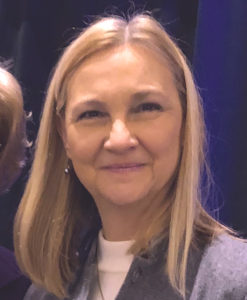
‘I had selectmen support’
Craver served for 13 years as municipal leader of Charlton, a town of about 13,000 residents. She negotiated a water contamination settlement of $30 million with ExxonMobil. And 2018 was a great year for her, with high marks from the selectmen and a 13-percent raise. The school administration had won a hard-fought override and citizens were calling for more economic development, said Craver by phone.
A 100-acre apple orchard that had been for sale on Route 20 for a while drew interest from a developer, who wanted to do marijuana manufacturing there. Dr. Jeffrey Goldstein, CEO of Valley Green Grow, proposed to construct the largest grow facility in the U.S., according to news reports.
“We didn’t anticipate the neighborhood reaction,” Craver said. “We could have done better. We could have had a public meeting earlier.”
She and the selectmen conducted private negotiations; the board then approved, unanimously and in public, a host community agreement.
Neighbors were horrified. They were used to living next to an apple orchard and now would be next to a one-to-three-million-square-foot operation, about the size of Gillette Stadium, according to MassLive.com. It would create 300 jobs and bring in annual fees of more than $2 million — in addition to property taxes, Valley Green Grow claimed.
The town of Charlton had voted to legalize marijuana. And the selectmen had just approved a community host agreement for another pot retailer without controversy, Craver said. That’s why they were not prepared for the neighbors’ reaction.
“So we pulled back,” she said.
The selectmen scheduled two public meetings and promised to re-vote on a host community agreement after hearing from the citizens.
Each meeting drew about 400 people, Craver said.
Afterward, the selectmen voted again and approved the host agreement, 4-1 this time. The citizens continued to put up a spirited fight.
Time to Say Goodbye
In May 2019 the Charlton town meeting voted to reduce Craver’s salary to $1 and even though the vote was reversed soon after, she decided her time was up.
“I think the selectmen appreciated the work I did for the town of Charlton and that was reflected in the severance package I received,” she said. “We also agreed I’d stay on for an additional three months to finish up projects before leaving.”
The lesson she learned was to try to anticipate controversy early.
But otherwise, “I think we did everything right,” she said. “Once we heard people didn’t get the information they wanted, we backed up. I’m disappointed we were not able to come to some understanding with the organized group of residents. I just realized that sometimes having consensus is impossible.”
In the case of Maria Broadbent, who was fired from her position of two years as head of the Annapolis office of environmental policy in 2018, she too faced years of opposition to the development of a 35-acre continuing care community called Crystal Spring. She had worked on the environmental review of the development for six years while holding various positions in city government. Her review spanned the tenure of two mayors, she said. When a third mayor, Gavin Buckley, came in, he too faced pressure from the same group of people who, she said, “wanted the development stopped and they were trying to push me to do something that the law would not allow.”
Buckley let her go under pressure, she said. “It was his prerogative and I respected it,” said Broadbent. “I left with my integrity and I’m OK with that.”
Craver, Broadbent, and the third candidate for Provincetown town manager, Diana Prideaux-Brune of Cambridge, will be interviewed by the select board in open session on Monday, Dec. 16 after meeting the public that afternoon from 1 to 3 at the Provincetown Commons.

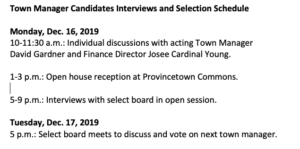

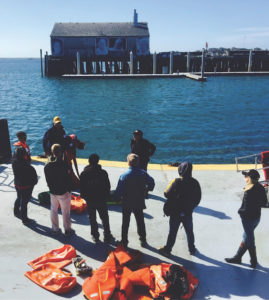

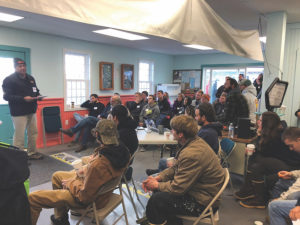

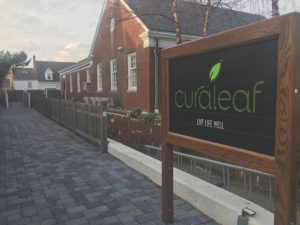

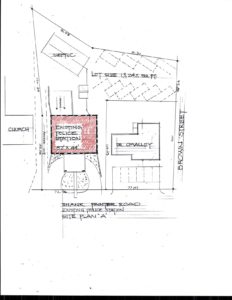
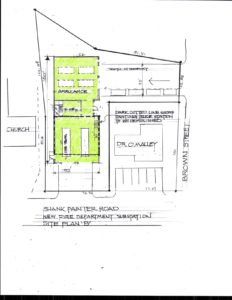


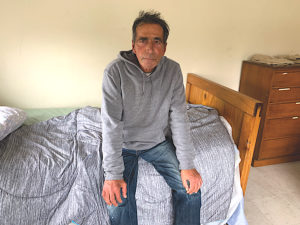

















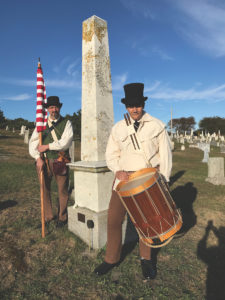
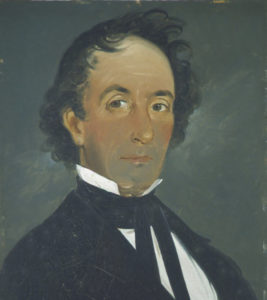
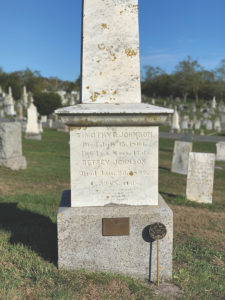

U.S. Attorney Andrew Lelling has questions for towns that have issued host community agreements to marijuana businesses.
Provincetown, Wellfleet, and Eastham town administrators all received subpoenas last month ordering them to produce documents, emails, and any other correspondence associated with the agreements.
They must appear at the John Joseph Moakley U.S. Courthouse to testify before a federal grand jury, according to the subpoena issued on Oct. 8 to Eastham Town Administrator Jacqueline Beebe. The notice commands her to be at the courthouse at 10 a.m. on Nov. 14.
Rae Ann Palmer, town manager in Truro, which has given a host agreement to a cannabis farming group, the High Dune Craft Cooperative, had not received one as of Tuesday, she said. But Wellfleet Town Administrator Dan Hoort and Provincetown Acting Town Manager David Gardner both have, they said.
No one knows why exactly. Katherine Laughman, who represents several towns including Eastham for KP Law, said she could not comment on the subpoenas because federal grand jury investigations are secret.
Lelling’s interest has something to do with the host community agreements, which are the critical first approvals marijuana businesses must get from towns before they can seek state licenses. In the case of medical marijuana dispensaries the agreements are called letters of non–opposition.
The subpoenas call for all written, electronic, or other records relating to any business that has applied for a marijuana (adult use or medical) license.
Officials must include “every iteration and draft version of the agreement,” the orders state. The U.S. attorney wants voicemail recordings and everything pertaining to public deliberations. And he has demanded all records that identify current or former town employees who have been hired by or received payment from a marijuana business applicant.
Gardner said he suspects the subpoenas have to do with the investigation and Sept. 6 arrest of Jasiel F. Correia II, the mayor of Fall River, whom the U.S. Dept. of Justice has charged with “extorting marijuana vendors for hundreds of thousands of dollars in bribes,” according to the U.S. attorney’s public announcement. Lelling’s office, which is prosecuting Correia, states that the bribes range from $100,000 to $250,000 in cash. In exchange Correia agreed to issue non-opposition letters and community host agreements to marijuana business owners, according to Lelling’s office.
Correia, 27, issued at least 14 non-opposition letters for marijuana businesses to operate in Fall River, including two for his current girlfriend’s brother. And when the Fall River City Council passed an ordinance to limit the number of marijuana licenses in the city to 20 percent of the number of off-premises liquor licenses or 11, whichever is greater, Correia vetoed the order, claiming that it would eliminate competition, Lelling’s announcement stated.
Attorney Michael Fee, a Truro resident who represented the High Dune Craft Cooperative in obtaining host community agreements from Truro and Wellfleet, said Gardner is probably correct. The host community agreements have been controversial from the start, he said.
“I can only speculate — I don’t know what Lelling is thinking,” Fee said. “But he’s probably thinking of the abuses unearthed by the Fall River mayor. These are egregious violations of the public trust.”
The host agreements give communities leverage over marijuana businesses. Towns are allowed by law to ask that up to three percent of sales revenue in the first five years be given to the towns as “community impact fees,” said Fee.
There is a clause in the law stating that community impact fees must correlate with the actual cost burden a new marijuana business places on police, fire, and other municipal services.
How do you judge such an impact with a completely new industry? Fee asked.
“My feeling is some cities and towns feel they can interpret this broadly,” Fee said. “So it’s an environment that’s ripe for unscrupulous public officials.”
Towns can also ask for other payments, as well as donations in kind, in the host agreements. These agreements are all public documents.
In Provincetown, for example — which has host agreements with seven pot purveyors — the community impact fee for all vendors is three percent of gross sales. Plus the cannabis vendors must give a discount to low-income medical marijuana card holders and donate 100 hours of community service activities. Each applicant also agreed to make an annual charitable contribution of up to one percent of gross revenues to a fund established to provide grants to social service agencies.
While host community agreements may have some controversial aspects that are open to interpretation, Fee thinks U.S. Attorney Lelling is looking for major corruption, such as what allegedly occurred in Fall River.
It’s highly unlikely Lelling will find anything like that on the Outer Cape, Fee said, adding that the agreements with Truro and Wellfleet on which he advised clients are completely appropriate.
In Provincetown, Gardner said the seven marijuana businesses that have host agreements are still waiting for final state approval. The furthest along, Curaleaf at 170 Commercial St., will probably open in January.
Wellfleet has five host community agreements for retail sales and one for cultivation, though none has final state approval.
Truro has signed only with the High Dune Craft Cooperative.
Eastham has two agreements, one for retail, one for both retail and cultivation.